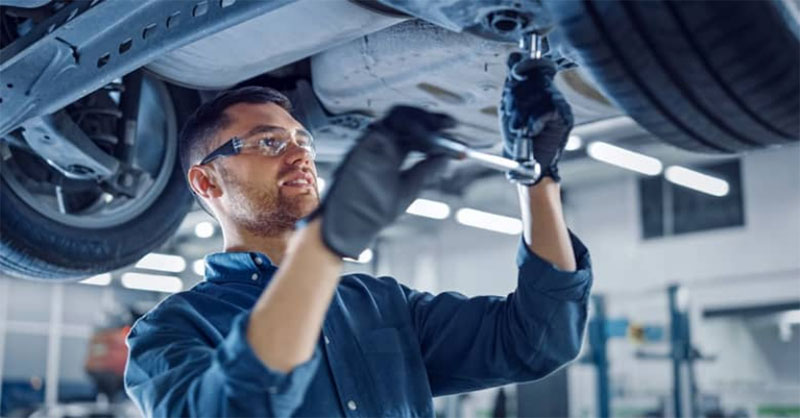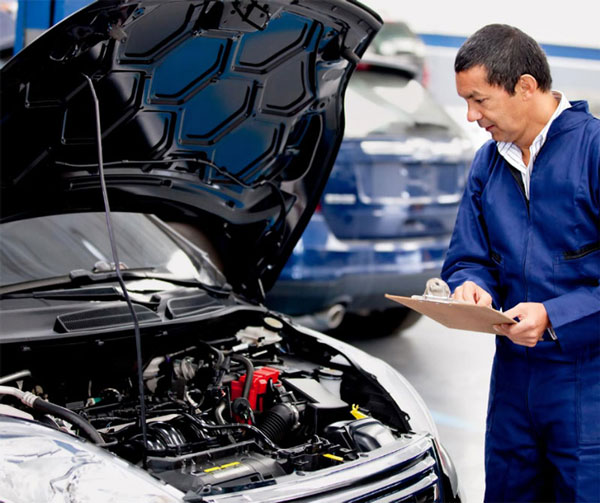Advertisement
You may already be aware that I instruct classes in automotive fundamentals aimed at the everyday motorist. This results in overwhelming requests to fix people's automobiles or recommendations for reliable mechanics flooding my email.
They need clarification on what differentiates Costco from a dealership or an individual company. A trustworthy mechanic is discussed in this first three-part series. It'll be your go-to resource for learning about the various types of mechanics, and I'll go into detail about where to search and what to ask for once you get there.
Dealerships

If your automobile is still covered by its original warranty, your first option should be to take it to the dealership. In this approach, there is no possibility that you will be able to nullify the guarantee by violating the terms.
You're welcome to take the automobile to a private repair shop, but doing so is entirely at your own risk. The benefit of having your automobile serviced at the dealership is that the mechanics there are trained to work exclusively on your make and model.
In most cases, the dealership will be able to figure out how to fix problems that are particularly novel or odd. Also, the dealer is the only place to take care of manufacturer recalls and warranty repairs. Many auto lots provide complimentary shuttle service; some may even have loaner vehicles available.
Service Centers For Corporations

Can I take my car to the Pep Boys down the street? All right, now let's define what it is that a corporate repair business does. The equivalent big-box stores to Pep Boys, Sears, Costco, Sam's Club, Walmart, etc., would be corporate repair shops.
These service centres often provide countrywide warranties and a fantastic mechanism for expressing complaints. There is a long line of command, so eventually, you'll get through to someone who can assist you.
However, it might be challenging to establish a long-term connection with a corporate repair shop due to the high turnover rate of entry-level employees.
Local Repair Facilities
I'll start by explaining the most critical group of stores to you. Some of these stores have been in the same family for decades, while others are brand new and trying to make a name for themselves. There are generally three types of independent garages for fixing cars. The retail landscape includes franchises, network stores, and mom-and-pop operations.
Franchises
Businesses like Meineke, Tuffy's, and Midas are examples of franchises. They are usually on par with chain stores in terms of warranty coverage. Branding and oil change pricing are mostly consistent between service stations, but other aspects, such as customer service, might vary widely.
One franchisee may run a single location, while another may oversee a network of tens, hundreds, or even thousands. You'll either get the warm, personal touch of a small firm or the impersonal professionalism of a large corporation.
Car Service Centers on a Network
Examples of shops that operate on a network include NAPA AutoCare Centers, RepairPal, the AAA Shop Network, and Ask Patty. These businesses are separate from one another, but they've decided to join this network for promotional purposes.
Nonetheless, I greatly value businesses that are part of such networks since doing so allows me to support a local small business while still receiving the benefits of a quality assurance certification.
To be accepted into a network, you'll need to meet its specific qualifications, but in general, you'll need to be a qualified repair technician with excellent people skills. NAPA is one company that will stand behind work done at any of its franchisees across the country with a warranty.
Local Repair Facilities
On the other hand, some garages are fully autonomous. Usually, these stores provide a substantial financial incentive for clients to spend money there. Since they don't have to pay the fees associated with franchises or massive networks, they may provide better prices.
The best customer service usually occurs when business owners actively engage in their operations. It's in your best interest to do window shopping before committing to any independent retailer; not all are made equal.
Expert Repair Facilities
At last, there are places devoted only to being mechanics. These garages may be divided into two distinct groups. These are the kinds of garages you take your car to only when you have a severe problem.
Some examples of these businesses include fixing car transmissions, tinting windows, installing car stereos, repairing wheels, etc. Stores that only work on one particular make or model of vehicle are the second subset.
Part 2 of this series will go over how to look for this second group in the same places you would for a typical mechanic.
Advertisement

Application of Cloud Computing in Financial Industry from the Perspective of Globalization

401(k) Plan vs. 457 Plan: What is the Difference?

How to Navigate Your Student Loans with Tuition.io?

Why is quantum technology valued?

Review Of The Royal Caribbean Visa Signature Credit Card

What is the Contribution of Goodwill to increase Company’s Worth?

Everything You Need to Know About Partially Amortized Loan

Top FHA Loan Institutions In 2022

AAA Member Rewards Visa

Exactly How Much Rent Can You Afford?

Positive Aspects of Capital One Venture
